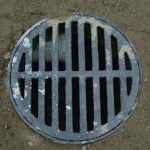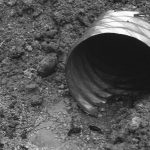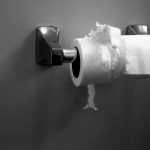Some people take a shower, and it goes from the ideal temperature to cold halfway through. Others may empty their dishwasher to discover that their dishes are not as clean as they should be. We don’t really understand how vital hot water is to our daily routine until we don’t have a regular supply available. If you’re stuck with intermittent supplies of hot water, it’s frustrating and hard to deal with on a daily basis. In this article, we will explore some common reasons why you may be running out of hot water.
The Water Tank is Too Small
The majority of modern water heaters are rated for the number of gallons of water that they can heat each hour. So, if you have a water heater that can heat up to 60 gallons of water per hour and this is the hard limit. Now, if you consider how much hot water you could be using at a given hour, you can start to see the scale of the problem. At peak times with a larger family, you will have multiple people using the available hot water. Sometimes these problems can be resolved with some smart scheduling. Perhaps you can run the dishwasher at night when everyone is asleep or shower in shifts with the first person that needs to leave the home going first. But, if making some changes doesn’t fix the problem, it’s time to consider installing a water heater with a larger capacity.
Using Too Much Hot Water at Once
This is related to the previous point; some people are quite rigid when it comes to timeframes for daily chores. This can be counterproductive because using too much hot water at once will affect cleaning and other tasks. As an example: if you run the dishwasher and washing machine at the same time, you may not have enough hot water to complete those cycles, and the results will be compromised. It’s always a better idea to stagger some of these activities throughout the day.
Water Heater Cleaning and Maintenance
A water heater is a hard working appliance, and like any machine, it needs to inspected, cleaned, and maintained on a regular basis. As a water heater gets older, there will be a buildup of sediment inside the unit that will degrade the performance and efficiency. The dissolved minerals such as calcium, magnesium, and iron that cause hard water will form scale inside your water heater. The burner will be covered in scale, and this will slow down the water heating process considerably. The best way to deal with this problem is to schedule an annual service for your water heater. A plumber can check that everything is working correctly and drain the sediment.
If you’re experiencing hot water problems in your home, contact a
local certified plumber for expert help and advice. They can inspect and maintain your hot water heater and install a new unit if you need more hot water in your home.
By Giovanni Longo President Flood Brothers Plumbing
Giovanni Longo is a 3rd generation master plumber who has been practicing his craft and trade in the greater Los Angeles area for well over a decade and a half. A plumbing and hydraulics-engineering innovator, Giovanni’s particular world-class expertise focuses on dealing with challenging sewer system designs as well as resolving complex commercial and residential draining issues. As a certified Flood Mitigation expert, he is also well versed in a wide variety of water damage and remediation solution.





